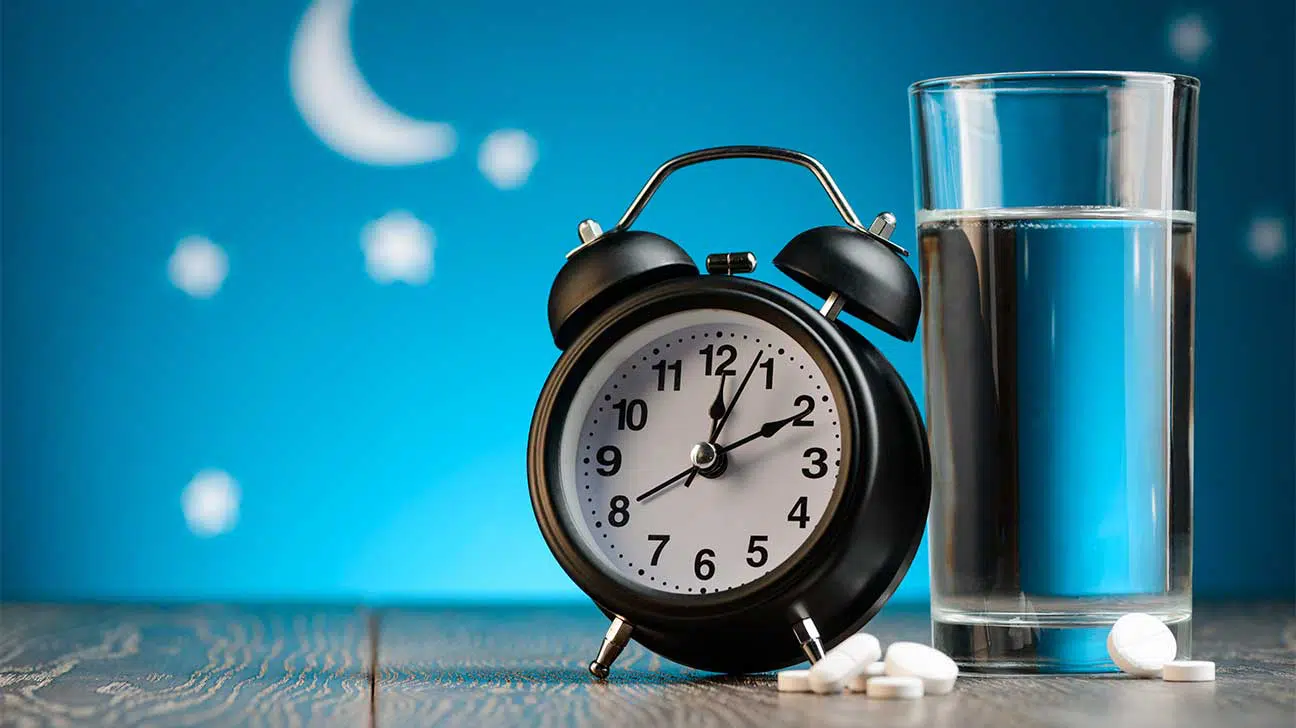
Yes, it is possible to overdose on melatonin. However, it is very unlikely to die from a melatonin overdose.
Despite being considered a safe dietary supplement, the FDA has no current recommended dosing guidelines for melatonin.
As a dietary supplement, melatonin is not held to the higher-standard restrictions that over-the-counter medications have.
Symptoms Of Melatonin Overdose
Melatonin is a neurohormone naturally produced in the brain by the pineal gland. As we age, natural melatonin production decreases, so it can be helpful to supplement this hormone.
Too much melatonin can cause unpleasant side effects and disrupt the sleep-wake cycle. Extended exposure to a lot of melatonin can also mimic an “artificial darkness” condition.
Administering large doses of melatonin could induce high concentrations of melatonin and other metabolites of melatonin. Resulting in melatonin toxicity.
Melatonin and its metabolites can have harmful effects, such as:
- nightmares and vivid dreams
- hypotension (low blood pressure)
- sleep disorders
- abdominal pain
The most common side effects of melatonin overdose include:
- headaches
- nausea
- dizziness
- drowsiness and sleepiness
Less common, serious side effects of melatonin overdose can include:
- feelings of depression
- mild tremors
- mild anxiety
- irritability
- reduced alertness
- confusion and disorientation
The amount of melatonin in someone’s system can easily cause unwanted side effects. And high levels of melatonin can cause someone to have trouble sleeping.
Is Melatonin Safe?
Melatonin use is generally considered safe. However, high doses of the substance can cause sleep problems.
It is also possible for individuals currently taking medications for other conditions to have adverse effects when they take melatonin.
Melatonin Safety And Medication Interactions
A harmful drug reaction could occur in people who are taking certain medications and ingest a melatonin supplement.
Medications and substances that can result in dangerous drug interactions with melatonin include:
- high blood sugar and diabetes medication
- anyone on blood pressure medications such as blood thinners and anticoagulants
- autoimmune disease and immunosuppressants
- epilepsy and anticonvulsants
- medicines for anxiety conditions and benzodiazepines
- prescriptions drugs for obsessive-compulsive disorder (OCD)
- Fluvoxamine (Luvox)
- contraceptives
- any central nervous system (CNS) depressants, such as alcohol or opioids
Ways To Produce More Melatonin Naturally
Most people take melatonin for sleep-related issues, but there are ways to produce low doses of melatonin without taking a supplement naturally.
A few ways someone can improve their melatonin production include:
- reduce exposure to blue light (from electronics) at least an hour before bed
- dim the lights as they get ready for bed
- keep a set sleep schedule
- set time aside for a relaxing bedtime routine
- try to stay within the same time zone or sleep around the same time while traveling
Treatment For Melatonin Overdose
Depending on the severity of the symptoms, treatment for a melatonin overdose may look different.
In emergency situations when someone is experiencing chest pains or struggling to breathe, medical interventions may be needed.
However, most melatonin overdoses are accidental, and the best treatment will be to take lower doses of melatonin or stop taking it altogether.
If someone needs to stop taking melatonin because they experience side effects, a medical professional may recommend other treatment methods to help them sleep better.
Addiction Resource aims to provide only the most current, accurate information in regards to addiction and addiction treatment, which means we only reference the most credible sources available.
These include peer-reviewed journals, government entities and academic institutions, and leaders in addiction healthcare and advocacy. Learn more about how we safeguard our content by viewing our editorial policy.
- U.S. Food & Drug Administration (FDA) — Dietary Supplements
https://www.fda.gov/food/dietary-supplements - MayoClinic — Melatonin
https://www.mayoclinic.org/drugs-supplements-melatonin/art-20363071 - Poison Control — Contact Us
https://www.poison.org/contact-us - PubMed.gov: Journal of Biological Rhythms — Toxicology of melatonin
https://pubmed.ncbi.nlm.nih.gov/9406047/

